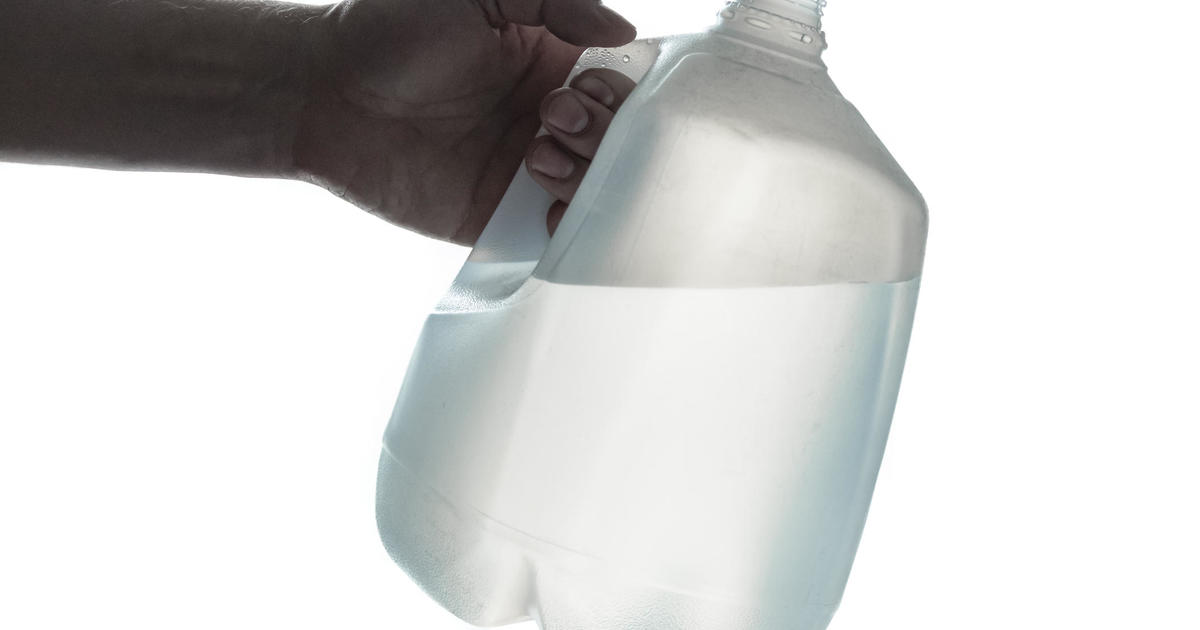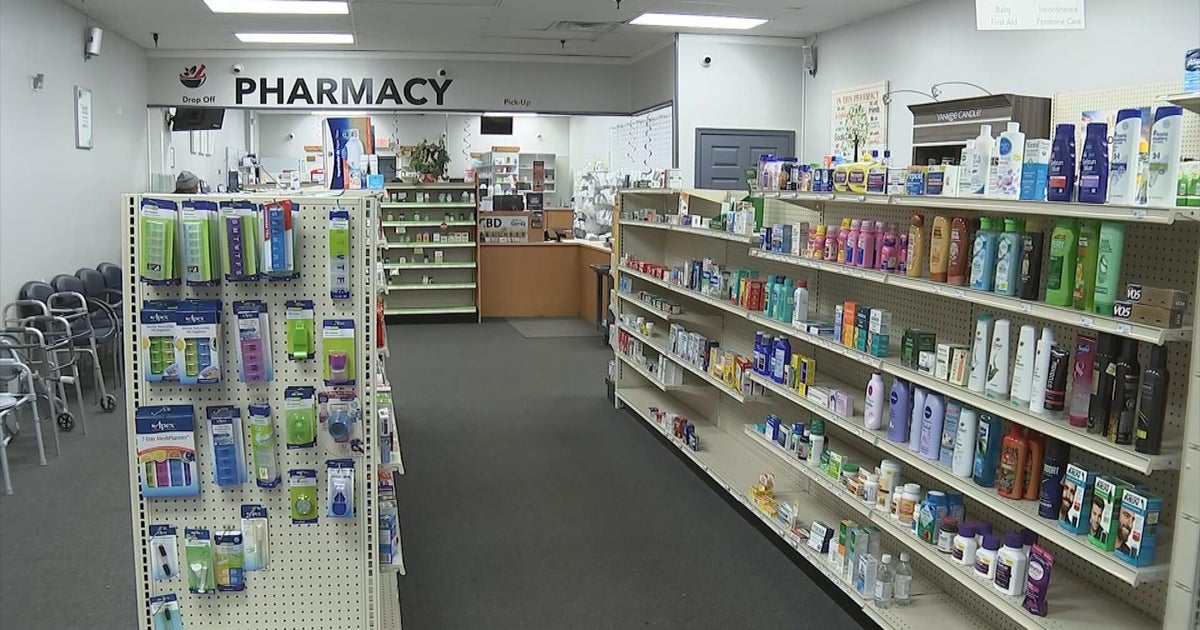What is Zyn? FDA OKs sales, but health concerns of the controversial nicotine pouches remain
It's not a cigarette or vape, because there's no smoke. And it's not chewing tobacco, because there's no tobacco or spitting required. It's called Zyn, a brand of nicotine pouches that have gained popularity, especially among younger demographics.
Some proponents of the pouches say it gives them a rush, while others hope it'll help them kick a smoking habit. So-called "Zynfluencers" can be seen popping the little white pouches between their gums and cheeks on social media.
Others, however, have warned against the product, noting health concerns. In addition to nicotine, the pouches also contain plant-based fibers, sweeteners and flavorings like cinnamon, citrus and coffee.
"We are hooking a whole new generation of young people on to nicotine," Dr. Nidhi Kumar previously told CBS New York. "The marketing strategies, the packaging looks like candy, flavors like cinnamon and mint and even names like 'smooth' or 'chill.' I mean, who are these products appealing to? Young people."
Here's what to know about health risks and concerns of Zyn.
Is Zyn FDA approved?
On Jan. 16, the Food and Drug Administration authorized Philip Morris International, the parent company of Zyn manufacturer Swedish Match, to sell the product to help adult smokers cut back or quit cigarettes. The authorization included 10 Zyn flavors, including coffee, mint and menthol.
It's the first time regulators have authorized sales of nicotine pouches, which are the fastest-growing segment of the U.S. tobacco market.
The pouches have been available for more than a decade as FDA reviewed company data intended to show the products can serve as an alternative to cigarettes and other traditional tobacco products. The decision doesn't mean that Zyn is safe, just less harmful than older alternatives.
Advocates quickly criticized the FDA's decision.
"The FDA should not be authorizing the sale of any flavored tobacco products given the tobacco industry's well-documented history of using flavored products to appeal to and addict kids," Yolonda Richardson, of the Campaign for Tobacco-Free Kids, said in a statement to the Associated Press.
Government survey data shows fewer than 2% of American high school and middle school students used nicotine pouches last year, according to the FDA.
Criticism over the pouches isn't new. Last year, Sen. Chuck Schumer issued a warning about Zyn, describing them as a "pouch packed with problems."
"These nicotine pouches seem to lock their sights on young kids — teenagers and even lower — and then use the social media to hook 'em," he said at a press conference.
Are Zyns better than vaping?
Unlike smoking and vaping, Zyn is smoke- and tobacco-free — but the pouches still contain nicotine, an addictive chemical.
This makes the product legal only for those 21 and above. The brand's warning label states the product is not intended for use by "minors, women who are pregnant or breastfeeding, or persons with or at risk of heart disease or high blood pressure."
"If you do not currently use nicotine, ZYN is not for you," the brand's website declares. Users of the website must verify their age before perusing the page.
Kumar told CBS New York that the pouches are "marketed as being products that can help you quit smoking," but said that experts "have no data to substantiate that."
Philip Morris International told CBS News it has not marketed the product for smoking cessation, and says all of its products "fully meet and exceed the regulations governing the industry."
"Our marketing practices—which prohibit the use of social media influencers—are focused on preventing underage access and set the benchmark for the industry. Real-world evidence shows this approach is working: the latest data from the Centers for Disease Control and Prevention and the FDA show oral nicotine pouch use by those under the legal age remains exceptionally low," the company said in a statement.
Even if using these products as an alternative to smoking, Dr. Mustali Dohadwala, medical director and practitioner at cardiology-focused private practice Heartsafe, says he wouldn't consider it a lesser of the two evils. Instead, "it's certainly a different evil."
"It's supposed to serve as a methodology for weaning, and you could argue that it can be even more difficult to quit a use of nicotine due to the flavor profiles... that are being marketed, manufactured and the way they're making it stylish to consume these products," Dohadwala says.
Does Zyn raise blood pressure or cause gum damage?
While we don't know the long-term effects of Zyn yet, health experts say there are several health concerns to be aware of when it comes to nicotine use, including cardiovascular, gastrointestinal and oral health impacts.
"We know that it increases heart rate (and) blood pressure," Dohadwala says. "In particular to oral nicotine pouches, what I worry about is periodontal disease. There are toxic chemicals in these pouches, which can lead to injury of the gums. Persistent, recurrent injury can end up leading to inflammation, infection but most importantly cancer."
Kumar echoed the concerns of periodontal and gum disease.
"If you're using these products, just Google nicotine pouches and dental disease — you'll spit it out right away," she said.
There can also be gastrointestinal effects, she added, including nausea and vomiting. Some users have also reported experiencing hiccups and diarrhea.
It can also increase your risk of diabetes in the long run, she said, since nicotine interacts with your cells to make you glucose and insulin intolerant.
Nicotine, addiction and mental health impacts
The negative impacts of nicotine go beyond physical health and into mental health as well.
While nicotine produces an immediate sense of relaxation, Kumar explained that the feeling is short-lived.
"When it wears off, there's a spike in edginess and anxiety, even stressful types of feelings," she said. "So it creates this vicious cycle because then you have cravings that wants you to get that relaxation feeling again but in the end it ends up increasing your anxiety level and your stress level when you use these products."
Another impact that's top of mind? Addiction, Kumar said, adding young brains are particularly vulnerable to the condition.
If you're dealing with nicotine addiction, Dohadwala says seeking professional help, like seeing an addiction specialist or psychologist, is important.
"It's important, too, for any person who ends up struggling with this addiction of consumption to understand that it is an addiction," he says. "It is something that's going to take time. This is not a sprint by any means, it is a marathon."
He also warns young people to be aware of the potential consequences if they're choosing to dabble in these pouches for fun.
"There are so many things out there that are trendy, and something that is artificial, that's potentially toxic to your body, you would want to really be cautious," he says. "There are untoward effects that are related to experimenting with these things, and at times those experimentations end up becoming habits and addictions."
If you or a loved one is experiencing a problem with substance use, help is available via the Substance Abuse and Mental Health Services Administration Helpline at 1-800-662-HELP.








